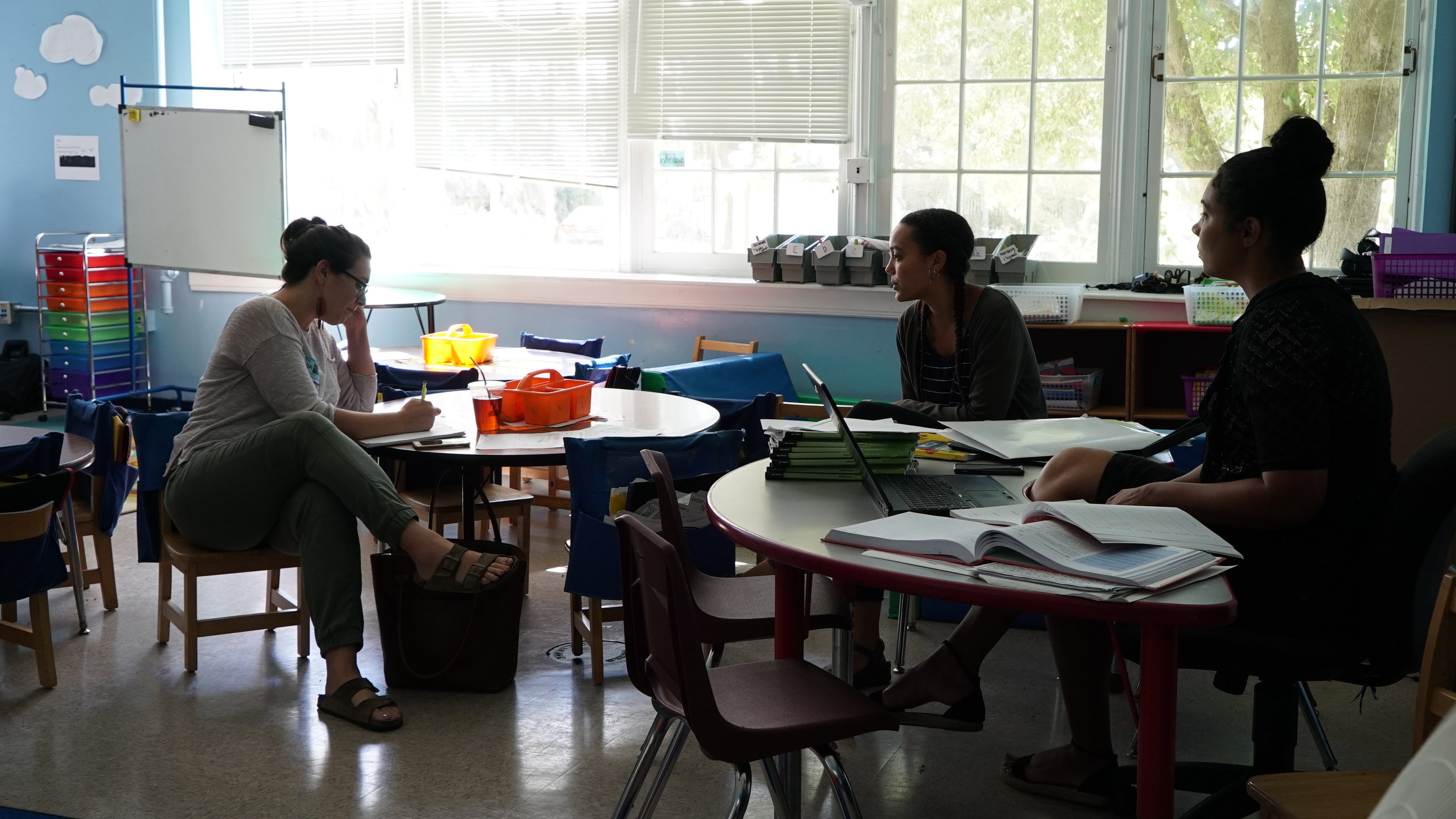Hats on Hats on Hats!
“We do not live in a world where problems are unilateral. More so, in order to see actual change, we have to work with systems, families, community organizations, schools and many more.”
“We must move from operating as an individualistic community and instead work as a collective to achieve balance and equity.”
Cardinal Seawell, CSW | CHC Program Coordinator
One of the first lessons of Social Work is that we wear many hats. In any position we may be called upon to be providers, advocates, counselors, case managers, educators, organizers, and the list goes on. Each role requires strong communication, creativity and flexibility - important skills to successfully help a community or an individual thrive. When someone asks me what I do and I answer, “I am a social worker,” they inevitability think I work for child services or something similar. When I clarify that I am the Program Coordinator of the Collective for Health Communities at the Institute of Women & Ethnic Studies (IWES) working on supporting the professional development of teachers and facilitating groups with youth, well, let’s just say they get confused. How can training teachers to implement a trauma-informed play-based intervention, leading a self-empowerment group for girls, and doing a situational analysis of the mental health providers in the city all be within one social worker’s job duties? And more so, how are they even connected?
The thing is, I chose to be a social worker because I believe in treating a community’s issues holistically. This is taught as systems theory in social work. Systems theory believes that an individual’s behavior is influenced by their environment. Meaning that everything is connected, and before deciding on how to address a problem, we must first look at it from many angles. For instance, to understand how to help a student succeed you need to assess their inherent strengths and look at what might be going on with that student’s home or neighborhood. We do not live in a world where problems are unilateral. More so, in order to see actual change, we have to work with systems, families, community organizations, schools and many more.
At the Black Lives Matter Symposium held by Xavier University in November of 2015 I heard Ralph McCloud, director of an anti-poverty program of the U.S. Conference of Catholic Bishops called the Catholic Campaign for Human Development (CCHD), speak on interrupting the cycle of poverty. He said that we have broken the circle of community because previously it used to be that if one part of the community was hurting, you could turn to the other parts to fill in the gaps. However, now if one part is hurting, the individual is left without support and is left to handle the problem by themselves. But what is the solution? If the community is whole, even when the individual suffers or experiences loss, they have support surrounding them to help them move forward. We must move from operating as an individualistic community and instead work as a collective to achieve balance and equity. Then we will gain the awareness to understand how our problems are connected and how they impact one another. When we take care of our community problems holistically we are setting ourselves up for success, even in the face of trials and tribulations.
As social workers, we know that there is no one answer to any problem, nor one solution to any challenge. We must use our different hats to examine the systems at play and work with individuals and community partners to find and heal the gaps in our circle of community.
“...we have broken the circle of community because previously it used to be that if one part of the community was hurting, you could turn to the other parts to fill in the gaps.”


